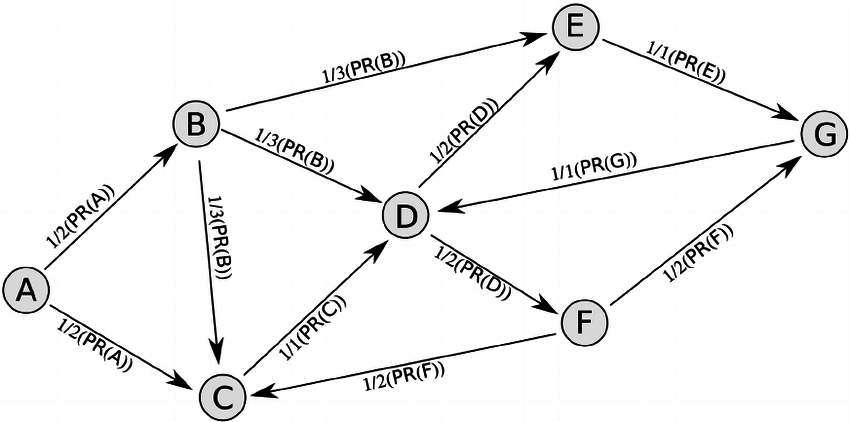In a recent interview, former Google CEO Eric Schmidt sparked a lively debate in the search engine optimisation (SEO) community by hinting that future search engines powered by artificial intelligence (AI) might abandon traditional links.

This statement has significant implications for digital marketers, SEO specialists, and website owners who rely heavily on search as a revenue stream or whose jobs depend upon how search works.
Schmidt’s comment implies that AI-driven search engines could potentially revolutionize the way we interact with online content. It indirectly means that Google is aiming for a future where the search marketers are redundant and the algorithms power search making advertising even more effective.
Instead of relying on links, these search engines might use advanced algorithms and natural language processing to provide users with more accurate and relevant results. This shift could fundamentally change how we approach search engine optimisation and content creation.
Meanwhile, OpenAI CEO Sam Altman dispelled rumors of a new search engine announcement on May 13. Instead, updates to ChatGPT are expected, including real-time news integration and internet search capabilities.
Despite denial, rumors persist about a search engine in development, potentially with Microsoft’s involvement. Announcements are set for May 13 at 10 a.m. Pacific time.
However, it remains unknown how Google will determine the quality of each result it presents without community engagement or even links pointing to that page.
To understand the significance of Schmidt’s statement, it’s essential to consider the evolution of search engines.
From the early days of Altavista to the dominance of Google, search engines have undergone significant transformations. Initially, search engines relied on simple algorithms and keyword matching to provide results. However, as the internet grew, search engines had to adapt to handle the increasing complexity and volume of online content.

Google’s rise to prominence was largely due to its innovative PageRank algorithm, which used links to determine the authority and relevance of web pages. This approach enabled Google to provide more accurate results and quickly became the industry standard.
Today, links remain a crucial factor in search engine rankings, with quality and quantity of links playing a significant role in determining a website’s visibility.
Eric Schmidt – Former CEO of Google“I hate to tell you but I think this stuff is underhyped not overhyped. Because the arrival of intelligence of a non-human form is really a big deal for the world. It’s coming. It’s here. It’s about to happen. It happens in stages. …the reason I’m saying it’s underhyped is you’re seeing the future of reasoning, the future of human interaction, the future of research, the future of planning is being invented right now. There’s something called infinite context windows, which means that you can — it’s like having an infinite short-term memory, which I certainly don’t have, where you can basically keep feeding it information and it keeps learning and changing.”
One of the main contention with such a view point is that SERPS for questions based in facts are easier to respond. For example, time.

However, questions that are opinionated or are not based in facts and subjective will require some level of human intervention.
Furthermore, Google and other search engines rely on content generated by others. The content that they indexed and ranked including the vast amount of information collected will now power these search engines without crediting the original authors.
The Rise of AI-Powered Search
In recent years, AI has begun to play a more significant role in search engines. AI-powered algorithms can analyze vast amounts of data, understand natural language, and learn from user behavior.
This enables search engines to provide more personalized and relevant results. For instance, Google’s BERT update, which leveraged AI to improve natural language processing, significantly enhanced the search engine’s ability to understand context and intent.
AI-powered search engines can also better handle complex queries, such as voice searches and long-tail keywords.
This shift towards AI-driven search has significant implications for SEO and content creation. As AI becomes more prevalent, traditional link-building strategies may become less effective, and new approaches will be needed to optimise for AI-powered search.
Implications for SEO and Content Creation
If AI-powered search engines abandon traditional links, the implications for SEO and content creation will be far-reaching.
- Rethinking Link-Building Strategies: Link building has long been a cornerstone of SEO. However, if links become less important, SEO specialists will need to adapt and find new ways to promote their content and build authority.
- Content Quality and Relevance: AI-powered search engines will likely prioritize content quality and relevance over traditional metrics like link count. This means that creating high-quality, engaging, and informative content will become even more crucial.
- Entity-Based Optimisation: AI-powered search engines may focus more on entities, such as people, organizations, and locations, rather than traditional keywords. This shift could lead to a greater emphasis on entity-based optimisation and structured data.
- Voice Search Optimisation: As voice search continues to grow, optimizing for natural language and conversational queries will become increasingly important.
Eric Schmidt’s statement about AI-powered search potentially abandoning traditional links has sparked a lively debate in the SEO community.
As AI continues to transform the search landscape, it’s crucial for digital marketers, SEO specialists, and website owners to stay adaptable and open to new approaches.
By understanding the implications of AI-powered search and evolving our strategies accordingly, we can stay ahead of the curve and continue to thrive in an ever-changing digital landscape.
